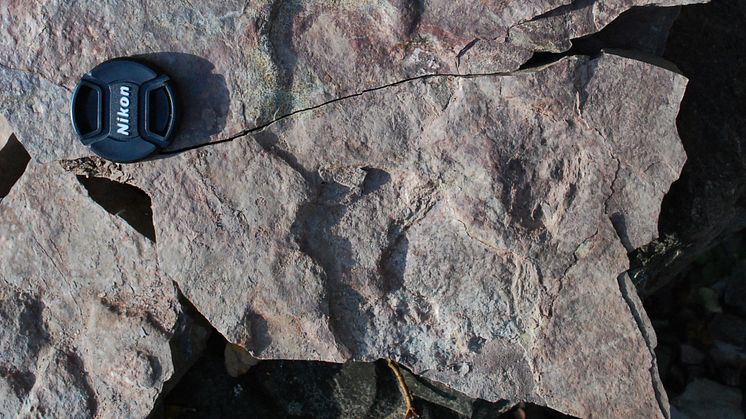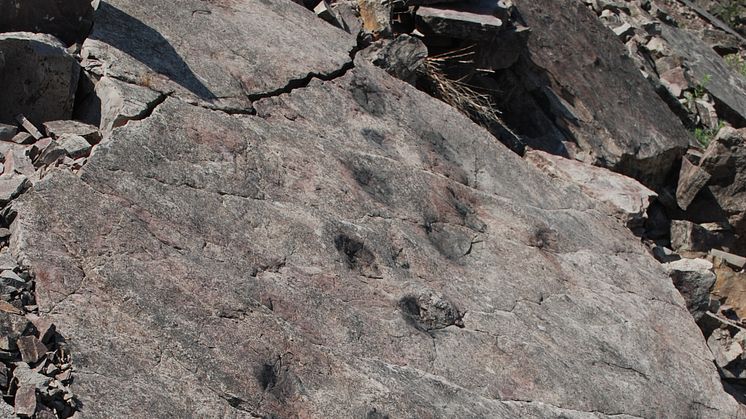Pressmeddelande -
Fossil footprints give land vertebrates a much longer history
The discovery of fossil footprints from early backboned land animals in Poland leads to the sensational conclusion that our ancestors left the water at least 18 million years earlier than previously thought. The results of the Polish-Swedish collaboration are published online this week in Nature.
- These results force us to reconsider our whole picture of the transition from fish to land animals, says Per Ahlberg of Uppsala University, one of the two leaders of the study.
For nearly eighty years, palaeontologists have been scouring the planet for fossil bones and skeletons of the earliest land vertebrates or “tetrapods” – the ultimate progenitors of all later amphibians, reptiles, birds and mammals including ourselves. Their discoveries have suggested that the first tetrapods evolved relatively rapidly from lobe-finned fishes, through a short-lived intermediate stage represented by “elpistostegids” such as Tiktaalik, about 380 million years ago. But there is another potential source of information about the earliest tetrapods: the fossilized footprints they left behind. In the new study a Polish-Swedish team describe a rich and securely dated footprint locality from Zachelmie Quarry in Poland that pushes back the origin of tetrapods a full 18 million years beyond the earliest skeletal evidence and forces a dramatic reassessment of the transition from water to land.
The trackways show that large tetrapods, up to three metres in length, inhabited the marine intertidal zone during the early Middle Devonian some 395 million years ago.
- This means not that not only tetrapods but also elpistostegids originated much earlier than we thought, because the position of elpistostegids as evolutionary precursors of tetrapods is not in doubt, and so they must have existed at least as long, says Per Ahlberg.
The elpistostegids, it seems, were not at all a short-lived transitional stage but must have existed alongside their descendants the tetrapods for at least 10 million years. The environment is also a major surprise: almost all previous scenarios for the origin of tetrapods have placed this event in a freshwater setting and have associated it with the development of land vegetation and a terrestrial ecosystem.
- Instead, our distant ancestors may first have left the water in order to feed on stranded marine life left behind by the receding tide, says Per Ahlberg.
For more information, please contact Professor Per Ahlberg, tel: 018-471 26 41, per.ahlberg@ebc.uu.se
Uppsala universitet - kvalitet, kunskap och kreativitet sedan 1477. Forskning i världsklass och högklassig utbildning till global nytta för samhälle, näringsliv och kultur. Uppsala universitet är ett av norra Europas högst rankade lärosäten.



